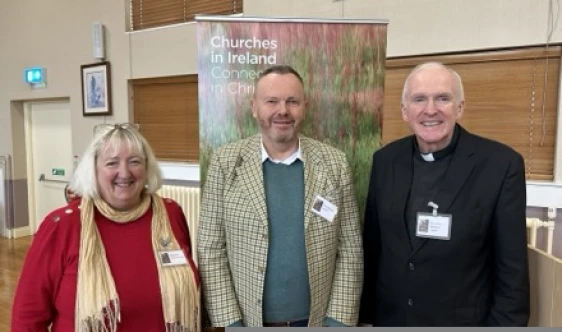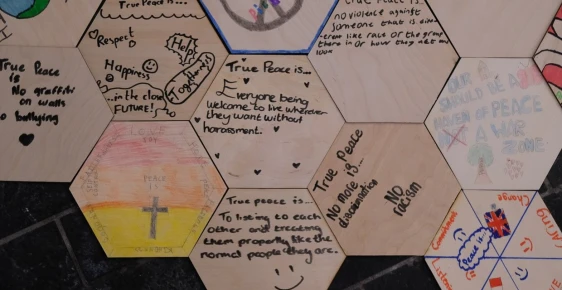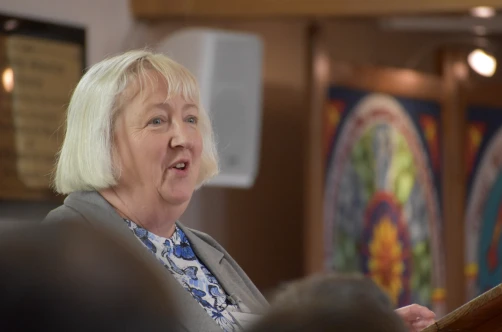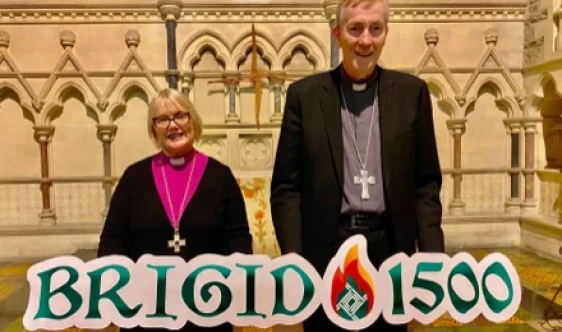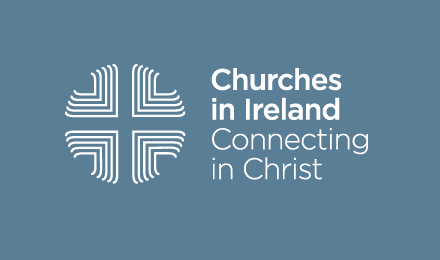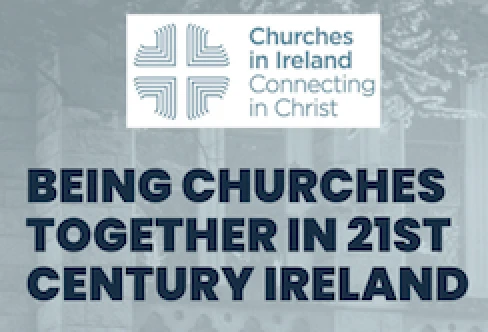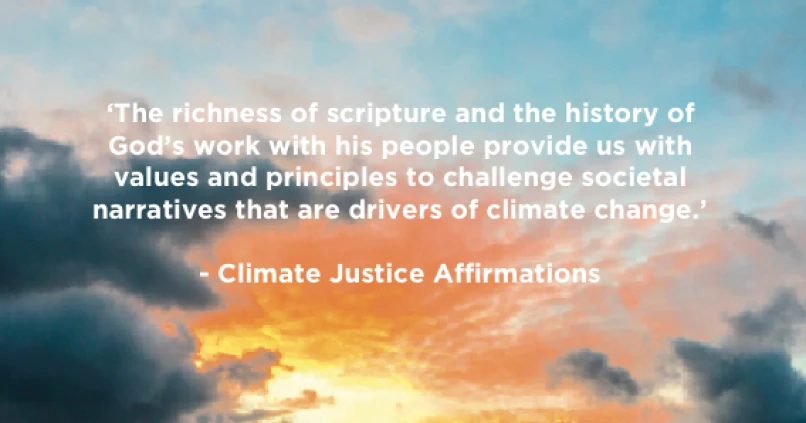
The next blog in this special Climate Justice series is written by Catherine Little from the Bible Society Northern Ireland. Read further as Catherine reflects on the power of scripture in caring for creation.
‘And God saw that it was good …’ Genesis chapter 1 is full of references to how pleased God was with His creation. He had made it perfect. It was made to His plan. He had determined the order and the detail of the earth.
Now thousands of years later our world has been through earthquakes, floods, war, famine, population explosions and it is still here giving us life every day.
As someone born in the early 1980’s I have been aware about climate change all of my life – I can remember very clearly when aerosols were being blamed for the hole in the ozone layer. Even then I remember thinking that using a spray can of deodorant was a ‘luxury’ that not everyone around the world had. Climate change, or climate breakdown as is now being called, has always had the biggest impact on those who did least to cause it.
I remember hearing about global warming at primary school and wondering how that could be such a bad thing – from my point of view warmer summers would be a great thing and if that could be coupled with less rain, my Fermanagh childhood could have been even more perfect.
The social narratives that are driving climate change are all the more present in 2019. We live in a society that is obsessed with itself. Our 21st Century ‘Me’ culture makes us think about ourselves first all the time – does this suit me? Is this the best outcome for me? Do I want to do this? What is in it for me? We do still think about and take actions that impact others but often after first thinking about ourselves.
Our 21st Century thought process always seems to want to blame someone else, someone else is always responsible. We don’t often hear anyone accepting their part when something goes wrong.
So are these social narratives of thinking about ourselves and blaming someone else driving climate change? Is climate change or climate breakdown happening faster in our generation than ever before?
It is probably fair to say that since the Industrial Revolution our planet has been put under increasing pressure. We have become a world that strives for wealth and more of everything and this has been at the expense of the planet.
The Bible has lots of stories that speak of God’s provision and of that being enough.
When the children of Israel are wandering through the desert, we read of God providing enough for each day. Those who gathered more than they needed and kept it overnight found it to be full of maggots and beginning to smell by the morning. (Exodus 16 :20) Manna from heaven was literally sent from God. He provided enough.
Or the times in the Gospels that we read of Jesus providing what was needed for right then, feeding the 5,000 with just five loaves and two fish; turning water into wine or providing healing at just the right time.
The Bible gives us a look into the father heart of God who wants to provide for His children. He has provided enough yet today in our world people go hungry, people are lonely, people are homeless.
God has given us freewill. For generations through the Bible we read about the decisions that people took that impacted others and not always for the good. Yet at the beginning of the early church we read how the believers looked out for one another, how they supported and looked after one another.
As Christians we need to promote these early church values of looking out for one another, of thinking about others before ourselves, of letting go of greed and our often insatiable desire for more stuff. We need to promote values and principles of inclusion, equality and equity rather than the all too prevalent values and principles that surround me, myself and I.
The prophet Micah sums this up in Chapter 6 : 8
‘And what does the Lord require of you? To act justly and to love mercy and to walk humbly with your God’.
As people of faith how do we challenge societal narratives of greed, of want, of more – we become good stewards, we think about our actions and make better decisions. The so called ‘Attenborough Effect’ in recent times has made us aware of the problems with plastic – but deep down we knew that plastic wasn’t good.
Let’s realise that for most of us we have enough, let’s think about how we reach out to those without and practice the greatest commandment from Matthew chapter 22 : 37 – 39
‘Love the Lord your God with all your heart and with all your soul and with all your mind … love your neighbour as yourself’.
